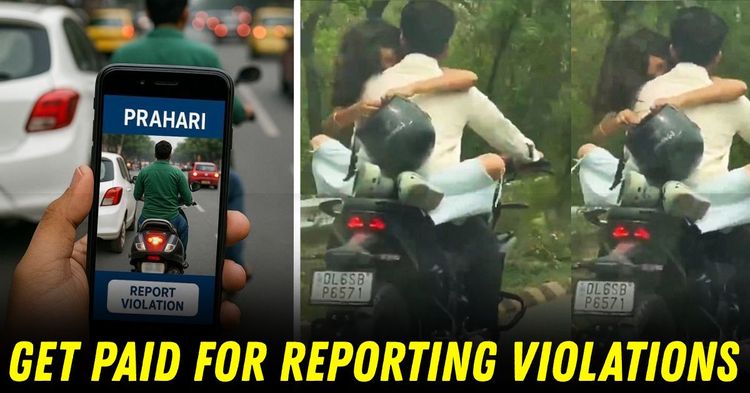In a striking move blending civic participation with digital enforcement, the Delhi Traffic Police has empowered ordinary citizens to play the role of watchdogs on the city’s unruly roads. Through the revamped Traffic Prahari app, residents can now report traffic violations and stand to earn up to ₹50,000 per month.
The initiative signals a radical shift in how urban governance is embracing technology and incentivized surveillance to tame India’s chaotic traffic landscape.
A City-Wide Digital Policing Experiment
Launched as part of the Delhi government’s broader smart governance strategy, the Traffic Prahari app enables users to capture violations — from helmetless bikers to red-light jumpers — and upload photographic or video proof directly to authorities. Each report must include critical metadata: date, time, location, and vehicle registration details.
Once verified, these submissions can lead to the issuance of digital challans under the Motor Vehicles Act. Notably, citizens whose reports result in successful enforcement actions are eligible for monthly rewards ranging from ₹10,000 to ₹50,000 — based on the number and quality of their verified submissions.
“This isn’t just about crowd-sourcing vigilance,” said a senior Delhi Traffic Police official. “It’s about creating a culture where everyone feels responsible for road safety.”
Snitch Economy or Civic Engagement?
The gamification of public surveillance has sparked both enthusiasm and discomfort. Supporters hail it as a smart deterrent to reckless driving, while critics question the ethical dimensions of deputizing civilians for law enforcement — especially when monetary gain is involved.
Nonetheless, early data suggests strong public engagement. Since its soft relaunch in September 2024, the Traffic Prahari app has garnered over 14,500 downloads and processed more than 10,000 violation reports.
Across India, similar efforts have shown significant impact. In Hyderabad, over 30,000 citizen-submitted violations were recorded in just five months, resulting in nearly ₹1 crore in collected fines.
The Scale of the Problem
India’s traffic violation statistics are staggering. In 2024 alone, over 8 crore traffic challans worth ₹12,000 crore were issued across the country. Shockingly, ₹9,000 crore of these remain unpaid, underlining the enforcement challenge faced by traffic authorities.
Some individual offenders exemplify the scale of disregard — such as a Bengaluru rider who racked up ₹2.91 lakh in pending fines. Against this backdrop, citizen participation emerges as a powerful force multiplier for overstretched enforcement agencies.
A Glimpse into the Future of Civic Policing
The Traffic Prahari programme is not just a policing tool — it’s a statement. By converting digital vigilance into a revenue-sharing opportunity, Delhi is experimenting with a form of decentralized civic enforcement.
For the city’s commuters, this means their next traffic violation may not just be caught by a CCTV camera — but by the smartphone of the rider next to them.
As India explores new models of governance and accountability in its urban spaces, Delhi’s experiment with crowd-enforced compliance may offer both lessons and warnings.


